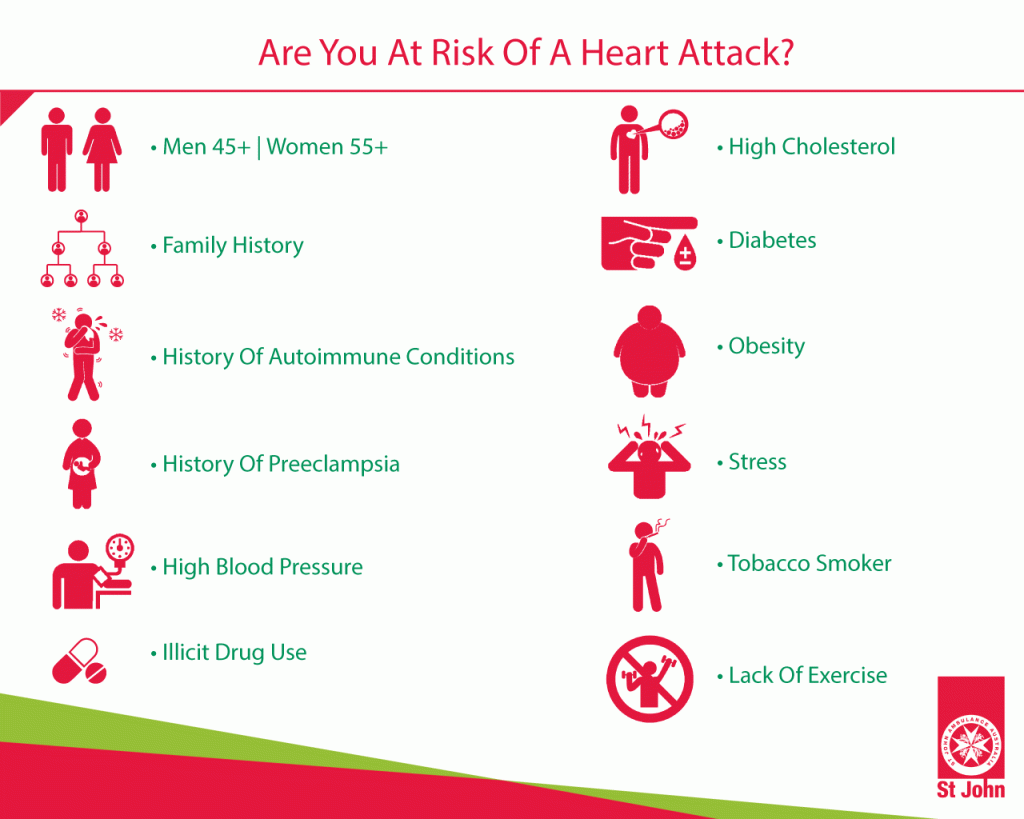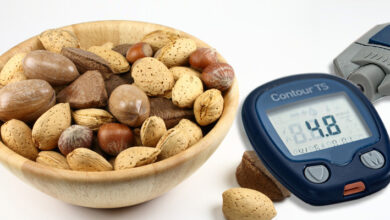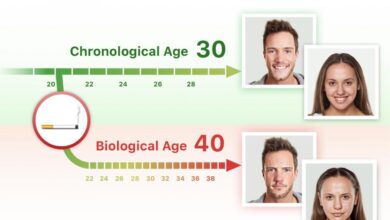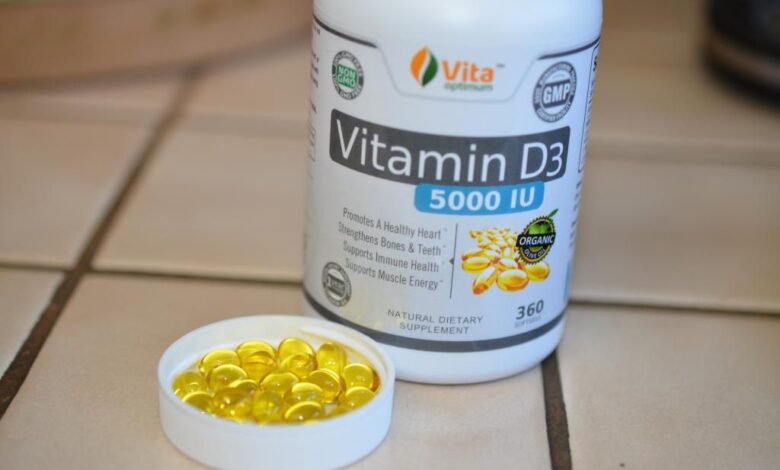
Dont buy the hype only 3 nutritional supplements help your heart – Don’t buy the hype; only 3 nutritional supplements truly help your heart. The market is flooded with promises of miracle cures for heart health, but many of these claims are just that—hype. This post cuts through the marketing noise to reveal the three supplements scientifically proven to support cardiovascular health. We’ll debunk misleading information, uncover the mechanisms behind their effectiveness, and provide practical guidance for making informed decisions about your health.
We’ll explore the common marketing tactics used to promote these supplements, comparing legitimate health information with exaggerated claims. We’ll also examine the potential risks of relying solely on supplements, highlighting the crucial role of a balanced diet and lifestyle in maintaining a healthy heart. Understanding these distinctions will empower you to make better choices about your health and well-being.
Defining the “Hype”
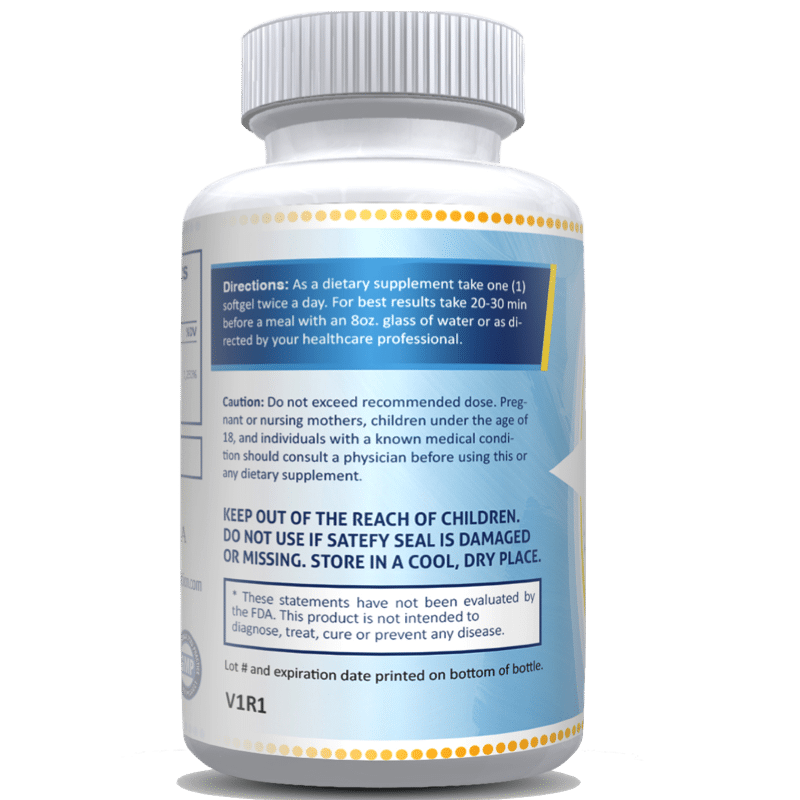
The marketing of nutritional supplements for heart health often relies heavily on creating a sense of urgency and exclusivity, often exaggerating the benefits and downplaying the risks. This “hype” can be incredibly persuasive, leading consumers to believe that these products are essential for maintaining a healthy heart, often without a proper understanding of the underlying science or potential dangers.The constant bombardment of advertisements and testimonials can create a perception that a supplement is a quick fix for heart health issues, often obscuring the importance of a balanced diet, regular exercise, and overall lifestyle choices.
This can lead to a neglect of proven methods of heart health maintenance, as individuals prioritize a potentially ineffective solution over well-established practices.
Common Marketing Tactics
Marketing campaigns often employ emotional appeals, focusing on fear of heart disease and emphasizing the potential benefits of supplements to alleviate this fear. Testimonials from individuals claiming dramatic improvements in heart health, often without providing scientific evidence, can be highly persuasive. Furthermore, vague or unproven claims of preventing or curing heart conditions can be presented as concrete benefits.
These tactics aim to capitalize on the public’s desire for simple solutions and quick fixes, creating a sense of urgency and perceived scarcity.
Exaggerated Claims and Misleading Information
Numerous supplements make claims about improving heart health that are not supported by robust scientific evidence. These claims often involve statements about lowering cholesterol, blood pressure, or improving circulation without specifying the dosage, duration, or the specific mechanism of action. Misleading information often includes statements that directly contradict established medical advice, such as recommending discontinuing prescribed medications without consulting a doctor.
Psychological Factors Contributing to the Hype
The desire for quick fixes and easy solutions plays a significant role in the popularity of these supplements. The perception that a supplement can replace healthy lifestyle choices or counteract the effects of unhealthy ones can be alluring. The fear of heart disease and the desire to maintain good health can create an environment where consumers are more receptive to marketing messages that promise quick solutions, even if unsubstantiated.
Additionally, the feeling of being part of a “secret” or “exclusive” group who have access to a special solution can also contribute to the allure.
How These Tactics Mislead Consumers
The marketing tactics surrounding these supplements can mislead consumers by creating an unrealistic expectation of the product’s efficacy. Consumers may be persuaded to spend money on supplements that do not deliver on their promises, while neglecting proven methods of improving heart health. This can lead to a delay in seeking appropriate medical care, potentially resulting in negative consequences.
Consumers may also be discouraged from adopting a holistic approach to heart health, focusing solely on the supplement rather than lifestyle modifications.
Comparison of Legitimate and Misleading Claims, Dont buy the hype only 3 nutritional supplements help your heart
| Feature | Legitimate Health Information | Misleading Claims |
|---|---|---|
| Source | Reputable scientific studies, clinical trials, and established medical guidelines. | Testimonials, anecdotal evidence, or unsubstantiated claims made by marketers. |
| Specificity | Clearly defined mechanisms of action, dosage, and duration of use, supported by evidence. | Vague or generalized claims about improving heart health without specific details. |
| Evidence | Peer-reviewed publications, validated by experts. | Limited or no scientific evidence to support claims. |
| Safety | Thorough assessment of potential side effects and interactions with other medications. | Neglecting potential side effects and interactions with other medications. |
| Context | Integrated into a holistic approach to heart health, including diet, exercise, and stress management. | Presented as a quick fix or sole solution for heart health issues, neglecting other crucial factors. |
Identifying the 3 Crucial Supplements
Unveiling the truth behind heart health often involves deciphering the hype surrounding numerous nutritional supplements. While a plethora of products claim to boost cardiovascular well-being, only a few hold demonstrable scientific backing. This exploration focuses on three crucial supplements with robust evidence supporting their positive impact on heart health.The following supplements, backed by scientific research, are pivotal in maintaining a healthy cardiovascular system.
They work synergistically with a balanced diet and regular exercise, playing a significant role in supporting overall heart health. Understanding their mechanisms of action, dosages, and potential side effects is essential for informed decision-making.
Crucial Supplements for Heart Health
These three supplements have demonstrated a positive impact on heart health through various mechanisms, impacting cholesterol levels, blood pressure, and inflammation. Their efficacy, supported by rigorous research, positions them as valuable tools in a comprehensive heart health strategy.
Omega-3 Fatty Acids
Omega-3 fatty acids, particularly EPA and DHA, are essential fats that play a crucial role in reducing inflammation throughout the body. They contribute to maintaining healthy triglyceride levels, a significant risk factor for cardiovascular disease. Furthermore, omega-3s can help lower blood pressure and improve blood vessel function.
- Mechanism of Action: Omega-3s help reduce inflammation, improve blood vessel function, and lower triglycerides.
- Recommended Dosage: Typically, 1-4 grams per day of EPA and DHA combined are recommended, though individual needs may vary. Consult a healthcare professional for personalized guidance.
- Potential Side Effects: Potential side effects include nausea, heartburn, and allergic reactions in some individuals. High doses can potentially increase the risk of bleeding.
- Research Support: Numerous clinical trials have shown a correlation between omega-3 supplementation and reduced cardiovascular risk factors. For example, a meta-analysis published in the “Journal of the American Heart Association” reviewed several studies and confirmed the positive impact of omega-3s on cardiovascular health.
Coenzyme Q10 (CoQ10)
CoQ10 is a vital antioxidant that plays a critical role in energy production within the heart cells. Maintaining adequate CoQ10 levels is essential for optimal heart function. Its antioxidant properties help protect the heart from oxidative stress, a key contributor to cardiovascular disease.
- Mechanism of Action: CoQ10 supports energy production in heart cells, protects against oxidative stress, and may help improve heart function in certain conditions.
- Recommended Dosage: The recommended dosage typically ranges from 100 to 300 milligrams daily, though individual requirements may vary. Consult a healthcare professional for personalized guidance.
- Potential Side Effects: Mild side effects, such as headache and nausea, have been reported in some cases. However, CoQ10 is generally considered safe for most people.
- Research Support: Studies published in reputable journals like the “American Journal of Cardiology” have investigated the role of CoQ10 in various heart conditions, highlighting its potential benefits.
Magnesium
Magnesium is a crucial mineral that plays a multifaceted role in maintaining cardiovascular health. It helps regulate blood pressure, reduce inflammation, and support the health of blood vessels. Magnesium deficiency is linked to an increased risk of cardiovascular events.
Don’t get caught up in the hype – only three nutritional supplements truly make a difference for heart health. While many products promise miracles, focusing on inclusive wellness is key. Shining a light on inclusive wellness reminds us that health isn’t a one-size-fits-all proposition. Ultimately, prioritizing these three key supplements can be more effective than chasing every trendy product.
- Mechanism of Action: Magnesium helps regulate blood pressure, reduces inflammation, and supports blood vessel health.
- Recommended Dosage: The recommended daily intake of magnesium varies depending on individual needs. Consult a healthcare professional for personalized guidance.
- Potential Side Effects: Potential side effects may include diarrhea, nausea, and abdominal cramping, particularly with high doses.
- Research Support: Research published in the “European Journal of Preventive Cardiology” demonstrates the link between magnesium intake and cardiovascular health outcomes.
Summary of Scientific Evidence
| Supplement | Mechanism of Action | Recommended Dosage | Potential Side Effects | Research Support |
|---|---|---|---|---|
| Omega-3 Fatty Acids | Reduces inflammation, improves blood vessel function, lowers triglycerides | 1-4 grams/day (EPA & DHA) | Nausea, heartburn, allergic reactions, bleeding risk (high doses) | Numerous clinical trials, meta-analysis in “Journal of the American Heart Association” |
| Coenzyme Q10 (CoQ10) | Supports energy production, protects against oxidative stress, improves heart function | 100-300 mg/day | Headache, nausea | Studies in “American Journal of Cardiology” |
| Magnesium | Regulates blood pressure, reduces inflammation, supports blood vessel health | Individualized based on needs | Diarrhea, nausea, abdominal cramping (high doses) | Research in “European Journal of Preventive Cardiology” |
Debunking Myths and Misconceptions
The supplement industry often presents a whirlwind of claims about their ability to magically improve health, including heart health. While supplements can play a role in a holistic approach to well-being, it’s crucial to understand the limitations and avoid falling prey to misinformation. We’ve already established that only three key supplements offer genuine support for heart health, but even with those, a balanced approach is paramount.Supplement companies often exaggerate the benefits of their products.
They might focus on isolated aspects of a nutrient’s potential, neglecting the crucial role of a balanced diet and overall lifestyle choices. This creates a misleading narrative, often leading to unrealistic expectations and a potential overreliance on supplements, rather than making fundamental lifestyle changes.
Common Misconceptions About Supplements and Heart Health
Supplement marketing often relies on misleading claims, emphasizing benefits that aren’t fully supported by scientific evidence. It’s essential to approach supplement use with critical thinking and a balanced perspective.
- Supplements can completely replace a healthy diet for heart health.
A balanced diet rich in fruits, vegetables, whole grains, and lean proteins is fundamental for heart health. Supplements can supplement a healthy diet, but they can’t substitute for it. Nutrients obtained from whole foods are often better absorbed and work synergistically with other components of the diet. Simply relying on supplements to address dietary deficiencies is short-sighted and can potentially lead to imbalances in the body.
While some might claim a plethora of supplements are crucial for heart health, the truth is, don’t buy the hype – only three nutritional components truly make a difference. Focusing on these key elements is more effective than chasing fads. Similarly, when it comes to childhood asthma, there are ongoing research efforts exploring if more can be done to reduce attacks, like investigating can more be done to reduce childrens asthma attacks.
Ultimately, the best approach to heart health, just like other areas of well-being, often comes down to sticking to proven, fundamental practices.
- A single supplement can cure heart disease.
Heart disease is a complex condition with multiple contributing factors. While certain supplements might help support heart health, they are not a cure-all. They should be part of a broader strategy that includes lifestyle changes, medical advice, and, when necessary, medication. Effective heart health management requires a comprehensive approach, not a quick fix.
- High doses of supplements are always better.
Excessive consumption of supplements can lead to adverse effects. The body has specific mechanisms for regulating nutrient intake. Taking more than the recommended dose doesn’t automatically lead to better results. In some cases, it could be detrimental to health. Always follow the recommended dosage guidelines and consult with a healthcare professional before increasing your intake.
Importance of a Balanced Diet and Lifestyle
A holistic approach to heart health is crucial, focusing on lifestyle changes in addition to considering supplements.
- A balanced diet rich in fruits, vegetables, and whole grains is essential for providing the body with essential vitamins, minerals, and antioxidants.
- Regular physical activity is vital for maintaining a healthy weight and improving cardiovascular function.
- Stress management techniques, such as meditation or yoga, can help reduce the risk of heart disease.
A balanced diet, exercise, and stress management work together to support optimal heart health. They provide the necessary nutrients and reduce the strain on the cardiovascular system.
Potential Risks of Relying Solely on Supplements
Relying solely on supplements to maintain heart health can be detrimental.
- Supplements may interact negatively with medications.
- Excessive consumption can lead to nutrient imbalances.
- Supplements are not regulated as strictly as medications, so quality and purity can vary.
These factors highlight the importance of consulting a healthcare professional before incorporating supplements into your routine.
Myth vs. Fact Table
| Myth | Fact |
|---|---|
| Supplements can replace a healthy diet for heart health. | A balanced diet rich in whole foods is fundamental. Supplements can support, but not replace, a healthy diet. |
| A single supplement can cure heart disease. | Heart disease is a complex condition requiring a comprehensive approach, including lifestyle changes, medical advice, and, if needed, medication. Supplements can support but are not a cure. |
| Higher doses of supplements are always better. | Excessive supplement intake can have negative health consequences. Follow recommended dosages and consult a healthcare professional. |
Practical Recommendations for Consumers
Navigating the world of health supplements can be overwhelming. Claims abound, and discerning fact from fiction requires critical thinking and a healthy dose of skepticism. This section offers practical guidance for consumers seeking to improve their heart health through informed choices, emphasizing the importance of reliable sources and evidence-based strategies.
Evaluating Credibility of Health Information
Determining the trustworthiness of health information is paramount. Look for information from reputable sources like the Mayo Clinic, the American Heart Association, and the National Institutes of Health. These organizations conduct rigorous research and provide evidence-based recommendations. Be wary of information from unqualified individuals or sources with a vested interest in promoting specific products. A critical approach is essential.
Look for citations and scientific backing to substantiate claims. Websites with .gov or .edu domains are often more reliable than those ending in .com, unless the .com site is from a reputable organization.
Distinguishing Genuine from Exaggerated Claims
Genuine health claims are supported by scientific evidence. They focus on the benefits of a balanced diet, regular exercise, and lifestyle modifications, often mentioning specific nutrients or compounds associated with improved heart health. Exaggerated claims often use misleading language, promising quick fixes or miraculous results. Be skeptical of claims that sound too good to be true. Look for concrete evidence, such as clinical trials, and don’t rely solely on testimonials or anecdotal evidence.
Focus on holistic approaches to heart health rather than isolated products.
Resources for Reliable Information on Heart Health
Accessing reliable resources is crucial for informed decision-making. Consider consulting your primary care physician for personalized advice. Websites like the American Heart Association and the Mayo Clinic provide comprehensive information on heart health. Local public health departments and libraries can offer additional resources. Use search engines like Google Scholar to find peer-reviewed studies on heart health topics.
Be mindful of the source’s credibility when assessing information.
Actionable Steps for Informed Supplement Choices
| Actionable Step | Description |
|---|---|
| Consult Your Doctor | Discuss your current health status, medications, and supplement goals with your primary care physician before starting any new supplement regimen. They can assess potential interactions and tailor recommendations to your specific needs. |
| Thorough Research | Use reputable sources to investigate specific supplements and their potential effects on heart health. Look for evidence-based studies and scientific backing. Avoid relying solely on marketing materials or advertisements. |
| Compare Supplements | Evaluate supplements based on their ingredients, dosages, and potential side effects. Compare different brands and choose those that align with your needs and preferences. Check for third-party testing certifications. |
| Read Labels Carefully | Pay close attention to the product labels for ingredients, dosages, and potential warnings. Understand the role of each ingredient in heart health. |
| Seek Professional Advice | If you have any questions or concerns about specific supplements or heart health in general, consult a registered dietitian or a certified health professional. |
Illustrating the Difference: Dont Buy The Hype Only 3 Nutritional Supplements Help Your Heart
Nutritional supplements can play a helpful role in supporting overall health, but they’re not a replacement for prescribed medications. Understanding the nuances between these two types of interventions is crucial for making informed decisions about your heart health. This section clarifies the distinctions, emphasizes the importance of professional guidance, and highlights how supplements can complement, not substitute, medical advice.Supplements are generally intended to augment an existing healthy lifestyle, providing additional nutrients.
Medications, on the other hand, are prescribed to treat specific conditions or symptoms. Crucially, supplements are not subject to the same rigorous testing and approval processes as medications. This means the quality and efficacy of supplements can vary significantly. Therefore, consulting a healthcare professional is essential before incorporating any new supplement into your routine, especially if you have underlying health conditions or are taking other medications.
Nutritional Supplements vs. Prescribed Medications
Nutritional supplements, such as vitamins, minerals, and herbal extracts, can contribute to a healthy heart. However, they aren’t designed to treat or cure heart disease. Prescribed medications, however, are specifically developed to address particular heart conditions and symptoms. They undergo rigorous testing and regulatory approvals to ensure safety and effectiveness.
Don’t get caught up in the hype about tons of supplements claiming to boost heart health. The truth is, only three key nutrients really matter. While it’s crucial to prioritize your well-being, remembering that quitting smoking, even after a lung cancer diagnosis, can significantly improve your health, as detailed in this article its not too late quitting smoking after a lung cancer diagnosis can help.
So, focus on those three essential supplements, and don’t let misleading marketing cloud your judgment.
Importance of Professional Consultation
Seeking advice from your healthcare provider is paramount when considering any new supplement, especially if you have pre-existing health issues. Your doctor can assess your individual needs and determine whether a supplement is appropriate for you. They can also evaluate potential interactions with other medications you may be taking.
Supplements as Support, Not Replacement
Supplements can support a healthy lifestyle, but they shouldn’t replace the guidance and treatment plans provided by your healthcare professional. They are meant to enhance your existing health regimen, not to cure or treat medical conditions. A balanced diet and regular exercise remain fundamental components of heart health.
Comparing Effects on Heart Health
Supplements can contribute to maintaining optimal levels of nutrients, which can potentially support cardiovascular health. For instance, certain vitamins and minerals may aid in blood pressure regulation or cholesterol management. However, the effects are often milder and less predictable compared to the precise and targeted action of prescribed medications.
Table: Supplements, Effects, and the Role of Doctors
| Supplement | Potential Effects on Heart Health | Role of Healthcare Professional |
|---|---|---|
| Coenzyme Q10 | May support heart function and energy production; some studies suggest potential benefits for heart failure. | Crucial for assessing individual needs and potential interactions with other medications. Important to discuss dosage and potential side effects. |
| Omega-3 Fatty Acids | May help reduce inflammation and improve blood lipid profiles, potentially supporting heart health. | Crucial for determining appropriate dosage, potential interactions, and to ensure the supplement’s quality. |
| Vitamin D | May support blood pressure regulation and reduce inflammation. | Important to assess current vitamin D levels and discuss appropriate dosage, especially if there are underlying health conditions. |
Supplement Interaction and Potential Issues
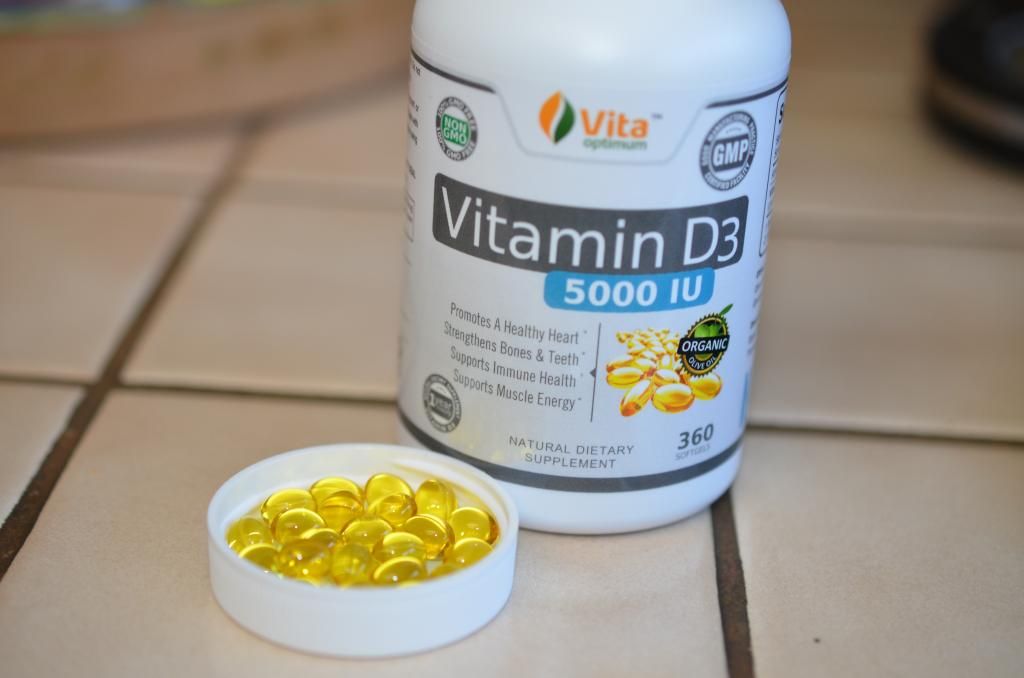
Taking supplements alongside existing medications can lead to unpredictable outcomes. Understanding potential interactions is crucial for maintaining health and preventing complications. This section delves into the complexities of supplement-medication interactions, highlighting potential risks and offering practical advice.Supplement use, while often touted as a natural alternative, can sometimes have unforeseen consequences when not managed carefully. This includes interactions with existing medications, the risks of excessive dosage, and the importance of proper timing and dosage.
A deep dive into these considerations is essential for informed supplement use.
Potential Interactions with Medications
Supplement use can alter the effectiveness or absorption of prescription medications. This is due to various mechanisms, including competition for absorption sites in the gut, or enzymatic interference with drug metabolism. For example, some herbal supplements can inhibit or induce the activity of enzymes that break down medications in the liver.
Adverse Effects of Excessive Supplement Use
Excessive intake of certain supplements can lead to a range of adverse effects. These effects can range from mild gastrointestinal issues to more serious health problems. For instance, high doses of vitamin A can cause liver damage, while excessive iron intake can lead to iron overload. The potential for harm increases with the duration and dosage of the supplement.
Importance of Proper Dosage and Timing
Supplement effectiveness and safety are highly dependent on proper dosage and timing. Consuming supplements at the wrong time can reduce absorption or impact their interaction with other medications. For example, taking calcium supplements with iron-rich foods can reduce iron absorption.
Interactions with Other Supplements
Supplement interactions are not limited to medications. Certain supplements can also interact negatively with each other. For example, taking vitamin C with certain antioxidants can either enhance or reduce the effects of the antioxidant.
Detailed Table of Common Supplement-Drug Interactions
| Supplement | Potential Drug Interaction | Example |
|---|---|---|
| St. John’s Wort | Can reduce the effectiveness of certain medications, including some antidepressants and immunosuppressants. | A patient taking St. John’s Wort alongside an antidepressant might experience a reduced effect of the antidepressant. |
| Ginkgo Biloba | Can increase the risk of bleeding when taken with blood thinners like warfarin. | Combining ginkgo biloba with warfarin could lead to excessive bleeding. |
| Vitamin K | Can counteract the effects of blood thinners, potentially increasing blood clotting. | Patients on warfarin should be cautious about consuming foods rich in vitamin K, or supplements containing it, as this can impact their blood clotting. |
| Iron Supplements | Can interfere with the absorption of certain medications, like antibiotics and thyroid medications. | Simultaneous intake of iron supplements and antibiotics can reduce the effectiveness of the antibiotics. |
| Garlic | May increase the risk of bleeding when taken with blood thinners. | Garlic’s blood-thinning properties can be amplified when taken alongside blood thinners. |
Wrap-Up
In conclusion, while supplements can play a supporting role in a healthy lifestyle, they should never replace professional medical advice. Don’t fall for the hype; focus on the three key supplements backed by science, and remember the importance of a balanced approach to heart health. This guide provides the knowledge to navigate the supplement market effectively, making informed decisions and ultimately contributing to your overall well-being.

